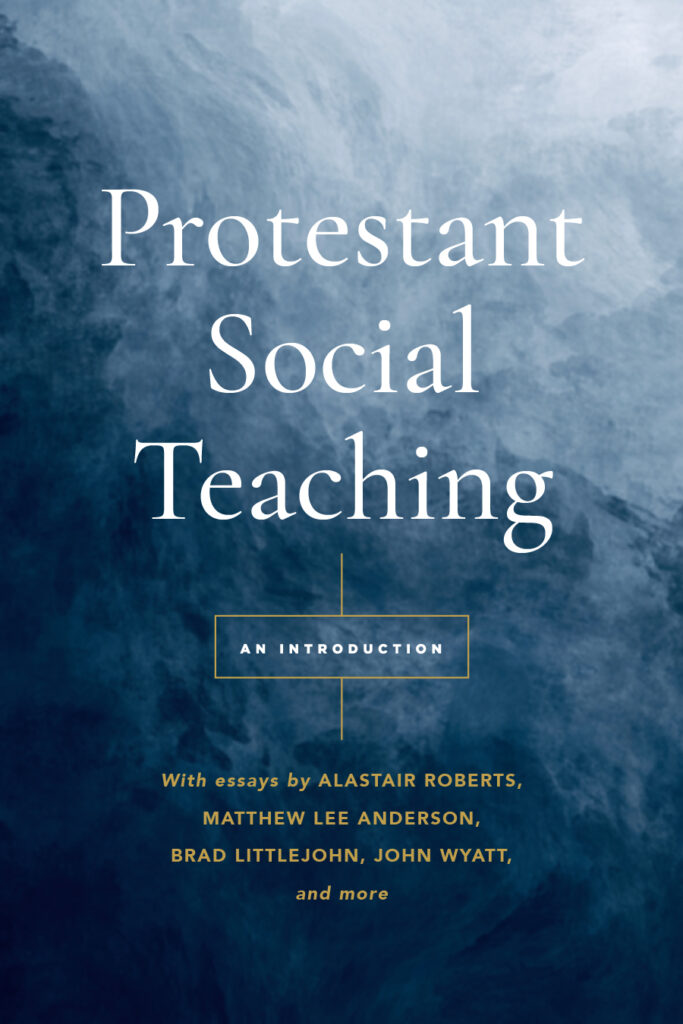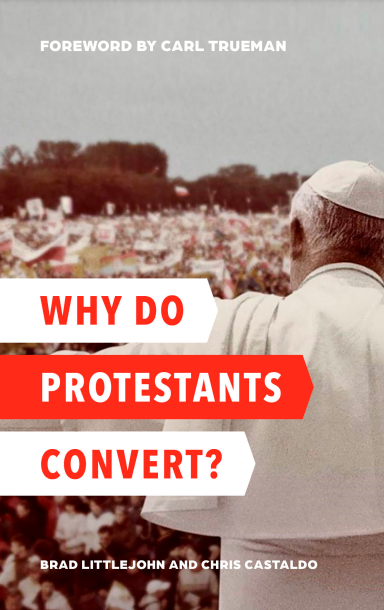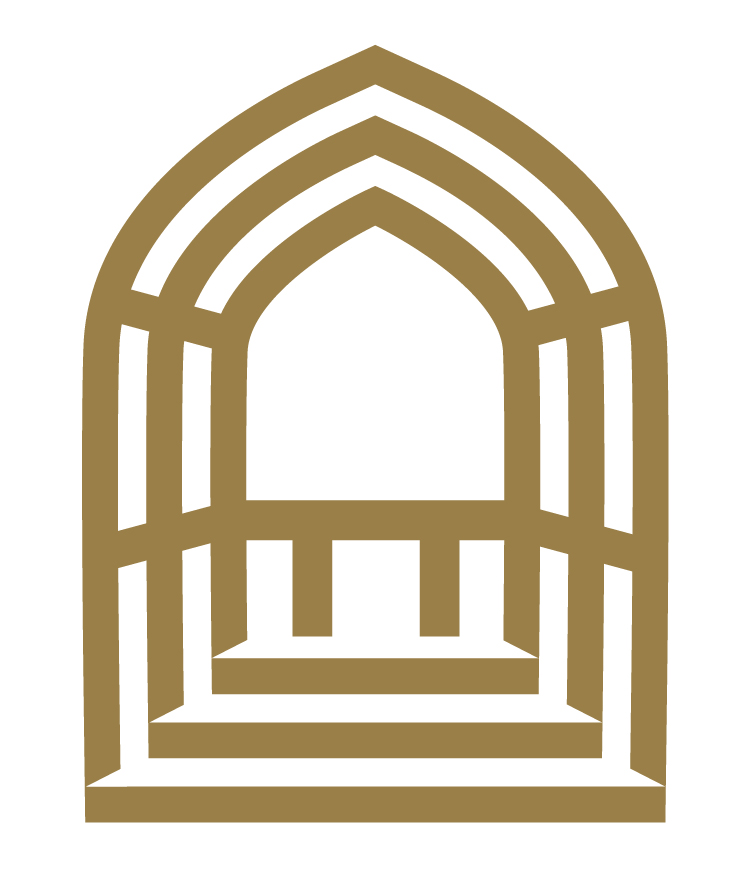Last week, Ross Douthat guest-hosted a New York Times flagship podcast, The Ezra Klein Show, interviewing fellow Catholic writer Sohrab Ahmari.[1] Any number of features from the interview are worth commenting upon. For example, it’s remarkable that Douthat, a conservative Catholic writer, is interviewing Ahmari, another conservative Catholic writer, on a podcast funded by the Times. But one element of this conversation bears particular importance; it is not explicit, and one would not be aware even of its existence unless one already had some inkling about the state of academic historical theology and what popular-level Catholic intellectuals are reading. I’m talking about the significance of Ahmari’s discussion of Andrea Dworkin – the radical, sex-negative second-wave feminist.
This may seem obscure, but bear with me. From these ten minutes of the podcast, we can learn a great deal about the way that knowledge flows from the academy to the masses, and Protestants would do well to pay attention—because we have nothing on the Catholics here.
About a third of the way through the discussion, Douthat asks Ahmari to explain a couple of chapters in his recent book, The Unbroken Thread. The second chapter Ahmari discusses is entitled “Is Sex a Private Matter?” In that chapter, Ahmari turns to a surprising authority: Andrea Dworkin. Ahmari appeals to Dworkin to argue that sex is never purely private: what is done in the bedroom or viewed on a screen has inevitable public consequences. To explain the public importance of sex in twentieth-century America, Ahmari ties Dworkin’s view of sex to St. Augustine’s concept of the libido dominandi – roughly speaking, the idea that even apparently virtuous human motivations are often the result of a prideful lust for domination, as evidenced by the Roman empire. The argument is essentially that not only our public acts, but also our private, intimate ones, can be and have been tarnished by this dominating lust.
The Success of the Catholic Intellectual Ecosystem
It’s a compelling thesis. But my interest lies not with the thesis itself but with what it reveals about what I’ll call the “Catholic intellectual ecosystem.” Because, you see, Ahmari got this idea from a brilliant 2005 paper by the Catholic academic and historical theologian John Cavidini, entitled “Feeling Right.” In that paper, Cavidini makes the same set of connections Ahmari outlines in the interview: he connects St. Augustine’s views of the passions, sex, and libido dominandi to Andrea Dworkin’s view of sex as dominating violence. The paper is a tour de force, and worth reading for its many insights (indeed, I’ve cited it in my own work).
Cavadini’s paper has been making the rounds among Catholic popular-level intellectuals for years now (as private conversations I’ve had with some of them have confirmed), and an essay on Dworkin appeared in the first issue of the new Catholic magazine The Lamp. So it’s no surprise to see it making an appearance on this podcast or in Ahmari’s book.
But particularly interesting is how this reveals a great deal about the way that intellectual argumentation, discovery, and popularization happen among conservative Catholics. Cavadini is a professor at Notre Dame, the theology department of which is among the top in the nation. Unlike many of the Ivy League divinity schools and religion departments, however, Notre Dame’s theology department is still largely, at heart, a theology department, dedicated to the study of God and his self-revelation in Jesus Christ. It is a place for an orthodox Catholic intellectual like Cavadini to work, and it facilitates the research of many of the best and brightest Catholic (and non-Catholic) theologians in the Anglophone world.
Most academic work takes at least a couple of decades to make itself felt in elite popular-level intellectual circles. To give a couple of examples: Critical Race Theory was developed as a paradigm in the 1970s, became mainstream in the academy in the 90s or even early 2000s, and now a version of it (to be frank, a deeply distorted version) is commonly discussed by journalists, politicians, left-wing and right-wing pundits, and even parents at school board meetings. Likewise, the work of Foucault gained prominence in the academy during Foucault’s lifetime, but it dominated throughout the academy following his death in the mid-80s, such that several of his works are now among the most cited of all time.
Now, let’s take a look at the timescale for the popularization and dissemination of Cavadini’s “Feeling Right.” His paper made some waves in academic theological circles when it was published in 2005, but academic theological circles are relatively low-prestige in the academy (theology being low-prestige within the humanities, and the humanities being low-prestige relative to the hard and social sciences). In studies of St. Augustine, sex, and contemporary debates about sexuality, it is regularly featured. But none of this tells us much about how, fifteen years after their publication, the ideas of a brilliant article in a low-prestige discipline within a low-prestige group of disciplines is being beamed to elite New York Times listeners and elite-adjacent conservative listeners alike (many of whom have read Ahmari’s book).
To understand how this happened, we need to take a look at Catholic public intellectuals. Ahmari is a convert to Catholicism, as are Ross Douthat, R. R. Reno, Matthew Schmitz, Michael Brendan Dougherty, Matthew Walther [editor’s note: Walther has subsequently clarified that he is not a convert. I apologize for the error.], Reinhard Hütter, Chad Pecknold, Eve Tushnet, Thomas Joseph White, and many other prominent Catholic intellectuals, both academic and popular. These converts populate positions of influence in academic and media ecosystems. R. R. Reno and Matt Schmitz have been at First Things, the premier journal of religious politics in America, for years now; Douthat has been at the New York Times for over a decade; Pecknold has recently been a columnist at First Things; Hütter has written for a number of popular outlets over the years, including First Things; The American Conservative recently hired Matthew Walther (previously of The Week) to write for it, and Michael Brendan Dougherty was hired a few years ago by National Review.
All of this to say: public Catholic intellectuals, and especially converts to Catholicism, hold prestigious posts across the media landscape. And by virtue of connections with academics who straddle the academic-popular divide (in large measure thanks to institutions like First Things, which regularly features essays by and hosts events with academics), Catholic public intellectuals are regularly exposed to the goings-on in Catholic academic circles. Because these public intellectuals have posts in or access to mainstream institutions, generally on the political right (but also, as in the case of Ross Douthat, left-of-center legacy prestige outlets), their ideas are disseminated broadly among intellectual elites – progressive and conservative alike.
And to be clear: all of this is a testament to Catholic courage and perseverance during the centuries of anti-Catholic prejudice in the United States. Catholics were forced to form their own institutions because they were often shut out of mainstream Protestant ones, and these institutions have in turn remained broadly (although not always reliably) Catholic over the past several decades.
To sum up, then, the Catholic intellectual ecosystem looks something like this: Catholic institutions of higher learning (like Notre Dame or the Catholic University of America) are among the best in the nation. They support the work of Catholic academics, who are often top scholars in their fields, and who without doubt dominate in the discipline of theology. These Catholic academics have connections to Catholic public intellectuals; these public intellectuals, in turn, have substantial access to mainstream journalistic outlets, where they disseminate the ideas they are receiving from Catholic academics.
This is how, in the span of just fifteen years, the ideas contained in an academic paper making the unlikely connection between St. Augustine of Hippo and Andrea Dworkin, published in an academic discipline that almost no one in the mainstream academy cares about, are being simultaneously beamed into the ears of New York Times subscribers and others who listen to Ezra Klein’s podcast and are also being imbibed by elite-ish conservatives, at least those who buy and read Ahmari’s book.
That is power.
The Scandal of the Protestant Intellectual Ecosystem
But why do I analyze any of this? What is the significance of the existence of these sorts of networks, and what is gained by analyzing them? First and foremost, this kind of network is significant precisely because of who possesses it, or rather, who doesn’t: Protestants.
For a variety of reasons, including the progressive apostasy of the mainline churches and the subsequent loss of distinctly Protestant Ivy League divinity schools, Protestants lack top-tier academic institutions of our own. Evangelicals run institutions, to be sure, but these are often not up to the intellectual level of their Catholic or secular counterparts. More often, they are several tiers lower, and Protestants today lack robust access to non-Protestant political and cultural outlets. Why is this?
There are a couple of reasons, I think. First: not only have Protestants lost the institutions that were formerly home for us, but we also lack robust representation at elite levels in the secular academy. This, in turn, means there is less distinctly Protestant work to popularize. Because there is less Protestant work to popularize, public intellectuals are not reading Protestants on a regular basis; the void is filled by Catholics.
Second: Protestants in elite institutions tend to be in the mainline, and the mainline has very little to say socially and politically that the secular, progressive left isn’t saying more forcefully, effectively, and cogently elsewhere. For this reason, the Christian voices featured in secular spaces tend to be either Catholic or evangelical. Which brings us to a further question: why aren’t conservative evangelicals achieving at the level of their Catholic counterparts? Again, I think there are a couple of reasons.
Conservative evangelicals tend to be populist in orientation, suspicious of elite institutions, research, and credentials (and not without some warrant, it should be noted). And populists, it should go without saying, generally have little appetite for “expertise” or “elites,” or for supporting institutions which sustain an expert class. But evangelicals have also tended to cede cultural ground they view as under threat, retreating to regroup elsewhere. In response to their skepticism of “expertise” or “political elites,” conservative Catholics have not retreated into bunkers or siloes, forfeiting their places in elite institutions; they have channeled such skepticism into top institutions of American conservatism, like First Things or National Review or more recently The American Conservative, as well as into the highest levels of the academy, as represented in the works of figures like Alasdair MacIntyre or Patrick Deneen. By contrast, evangelicals have largely forfeited or wasted such positions, apparently in the belief that such positions are hopelessly tainted (consider regular evangelical sneering at the Ivies), that figures within them are powerless to do anything (consider the disappointing record of Francis Collins as NIH director), or, more tragically, because evangelicals, as mirror images of their mainline counterparts, have had little to say that wasn’t already being said better by non-evangelical Reaganite neo-Conservatives (consider the evangelicals active at The Bulwark or The Dispatch).
As an aside, it is worth noting that this populist orientation has generally given evangelicals a distinct advantage in the realms of media and popular outreach, using mass-market media to connect with the masses. Figures like Billy Graham have few analogues in the Catholic world, and even if Catholicism is in the process of replacing the mainline’s former function in elite American culture, evangelicalism has simultaneously come to dominate lowbrow religious popular culture. Catholicism, by contrast, is fundamentally tied to one institution—the Roman Catholic Church—with a fixed hierarchy and established patronage networks, both of which can funnel money into elite institutions for the purpose of cultivating excellence.
An additional issue: perhaps as a result of the fundamentalist-modernist controversy, or perhaps as a result of the mass apostasy of the mainline, conservative Protestant circles tend to have more, and more rigorously policed, theological and cultural shibboleths and smell tests. In some respects, this evangelical impulse is good: it can preserve something closer to the traditional position on Scriptural authority, certainly more effectively than the mainline can. But in other respects, this impulse fragments Protestants and ultimately destroys the possibility of forming networks of sufficient size and scope to sustain an ecosystem of intellectual life like that sustained by American Catholics.
Finally, evangelicals in the pews generally don’t care, or believe they shouldn’t care, about what the elites think or talk about – what the NYT or WSJ or Washington Post publishes, what the latest best seller on the NYT best seller list is. Jesus didn’t care about all that fluff, and the real work is the gift of faith by grace through the Holy Spirit. And so, they support their local church’s Bible camp instead of Protestant academic institutions. I suspect such rhetoric is not fully thought-out—after all, Jesus seems suddenly very interested in what the elites are up to when there is a presidential election on the horizon. The truth is rather that evangelicals often pretend an other-worldly remove with respect to certain kinds of prestige or cultural activity, but they have always had a strong activist streak when it comes to politics. This reveals a misunderstanding about how elite (and thus popular) culture is shaped. It isn’t shaped whole cloth from political victories or from the founding of evangelical-only magazines, important as those no doubt are. Rather, culture is shaped gradually, over time, by people who hold posts in the relevant secular (or ecumenical) cultural institutions and who are willing to use those posts for the advancement of what is good and true.
How To Build An Ecosystem
So where do we go from here? Evangelical engagement in politics clearly demonstrates that evangelicals wish to shape American politics and culture. But evangelical divestment from institutions that are either secular or non-evangelical prevents evangelicals from being sharpened by non-evangelicals and in turn sharpening them. If confessional Protestants and evangelicals want to be able to get their ideas out into the real world, if they wish to break out of their echo-chambers, what needs to happen?
Looking at Catholics is instructive. We need, first and foremost, to join, create, and sustain truly elite institutions of higher learning – institutions which are able to more effectively balance the tensions between upholding orthodoxy and pushing intellectual boundaries to meet the needs of our day than the current set of seminaries and colleges are doing. We need, second, to create and sustain a public intellectual class capable of disseminating the ideas originating in our elite academic institutions to the broader public. This can take the form of creating journals which emphasize Protestantism (as First Things does Catholicism) or it can take the form of seeding key figures into non-Christian elite institutions (like Ross Douthat, with his post at the Times).
There are good organizations attempting to do just this, but they are still young and fledgling. Mere Orthodoxy aims squarely to be a bridge-space between the academy and the laity, a popularizing outlet dedicated to the retrieval of orthodoxy and its promotion in the public square. The Davenant Institute, my employer and the mother organization of this site, is attempting to do both things simultaneously: create and sustain both real, top-flight Protestant thought which is not beholden orthodoxies invented yesterday but rather to the faith once delivered to the saints as expressed and articulated by the historic Protestant tradition, and to create and sustain organs like Ad Fontes to publicize and popularize such thought for the broader world of letters. There are a couple of other organizations in this space, but not nearly enough: we need a true ecosystem, one which has the intellectual firepower to survive and even thrive in the world’s ocean. Too often, we have settled for greatness in the evangelical pond.
If you found this interesting, check out more from the Davenant Institute…
Protestant Social Teaching:
An Introduction
An introduction to historic Protestant teaching on ethics, politics, law, and more.
Why Do Protestants Convert?
Why have there been so many recent high profile conversions to Rome?
Davenant Hall
Rebuilding the medieval university for the digital frontier.
Onsi A. Kamel (MA, University of Chicago) is a PhD student in Philosophy and Religion at Princeton University. He previously worked as Editor-in-Chief of Ad Fontes. His popular writing has appeared in Ad Fontes, Mere Orthodoxy, First Things, and elsewhere. His academic writing has been published in The Scottish Journal of Theology.



